Search Results for Tag: Climate
Much ado about nothing? So much for the big climate conference
No, there’s no ice on the picture. It’s actually one I took on a trip to Australia. But the mood matches my mood as I reflect on the results from Doha. What a meagre outcome. Kyoto extended – big deal. The reduction pledges are too low, there are too few countries involved. Without the USA and China committing to substantial reductions, there is little chance of reaching that two degree target – or even a four-degree target, which even the World Bank says could be on the cards, and scientists agree would be pretty devastating for the planet. The developing countries battling drought and floods, the small island states sinking in rising seas – are still left wondering where the money they’ve been promised to help them cope is going to come from. And it seems to me a real plan for that next world climate agreement must be far off on that dark, dusty horizon somewhere.
Let’s not wait for the next round of UN talks. We need to take action now. That means politicians, industry – and you and me. Listening to people talking about the outcome, the biggest danger I see is that people think there is nothing we can do anyway. I know it’s frustrating. I do not expect much of these mega annual climate-shows. But that shouldn’t stop us from pushing ahead with energy saving, renewables and anything we can do to make our lifestyles more sustainable.
The long Doha wait – is it worth it?
Still waiting for the outcome of the conference. My expectations are not high. Some of the ngo representatives have just said it would be better to let the conference end with no agreement rather than unsatisfactory compromises. I can see their point of view. If there can be no definitive pledges to the developing world of the funding needed for adaptation, what is the point in agreeing? If the Kyoto compromise will still let Russia and eastern European countries use up old emissions permits, is there really anything gained? And without a single pledge of significant reductions, things do not look good for a new world climate agreement from 2020. On the other hand, it would be a very bad sign if nothing came out of Doha. But the chances of anything substantial being agreed still seem to me virtually non-existent. Meanwhile, there seems to be one study after another coming out about the accelerating ice melt in the polar regions. And I think you can forget that 2 degrees target.
How can the Antarctic be melting when part of the ice sheet is growing?
One of my colleagues keeps telling me global warming is not really causing ice melt, because the East Antarctic ice sheet is actually growing. Yes, it is indeed, according to the latest comprehensive study taking account of all the available satellite data. But this is in fact consistent with what scientists expect from climate warming. Warming oceans are leading to more precipitation, which falls on the high East Antarctic ice sheet as snow. The situation in West Antarctica and on the Antarctic peninsula are very different. If you find all this interesting, you might like to listen to this Interview with Andrew Shepherd, coordinator of the latest study, supported by NASA and ESA, the European space agency. He explains what the satellites tell us about the state of the polar ice caps and their increasing contribution to global sea level rise.
In case you missed them, you can still catch up on the satellite study and the latest models on sea level rise. At the end of the interview I asked Prof. Shepherd what difference the data could mean to the next IPCC models on sea level rise. He made the point that the real uncertainty in these models is about what emissions trajectory the world’s countries will opt for. Which brings us back to Doha. I’m following the talks with interest, but not much in the way of expectations. The German environment minister told my colleague Andrea Rönsberg in an interview he wasn’t too optimistic about whether the talks would manage to reduce sea level by even a tiny degree. He’s not alone there.
Is wildfire smoke helping to melt the Greenland ice sheet?
I have come across an interesting story from the University of Ohio State saying satellite observations have revealed the first direct evidence that smoke from wildfires in other parts of the Arctic is drifting over the Greenland ice sheet, polluting it with soot which makes it more likely to melt in the sun.
![]() read more
read more
Stop flying over the North Pole! (Exception: Reindeer-drawn sleighs)
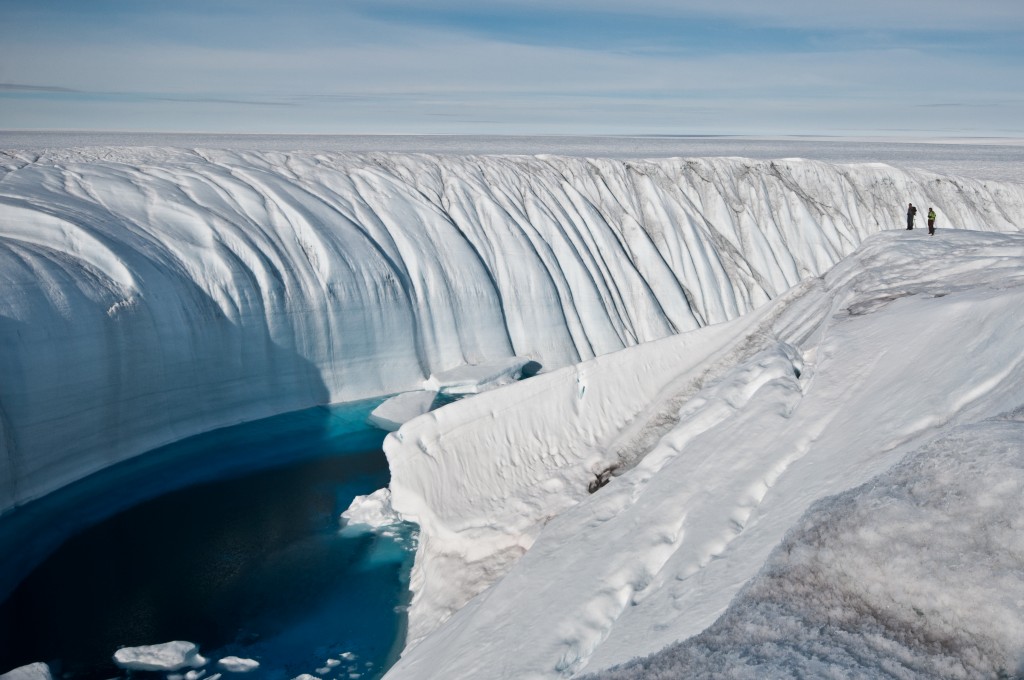
Greenland melt stream photographed by Ian Joughin, a glaciologist in the University of Washington’s Applied Physics Laboratory
I have written a lot about the melting Arctic ice on the Ice Blog. This spectacular photo shows a channel carved into the Greenland ice sheet by melt water. It was taken by Ian Joughlin from the University of Washington, co-author of the study on melting polar ice (see Ice Blog post from 30.11.12) and lead author of an article on factors that cause ice sheets to lose mass. It goes without saying (almost) that we need to reduce emissions to halt the process. (Come on Doha negotiators). A new study has come up with an additional suggestion. Atmospheric scientist Mark Jacobsen and his colleagues suggest airlines could help slow Arctic melting by stopping international flights from crossing over the Arctic circle.
![]() read more
read more



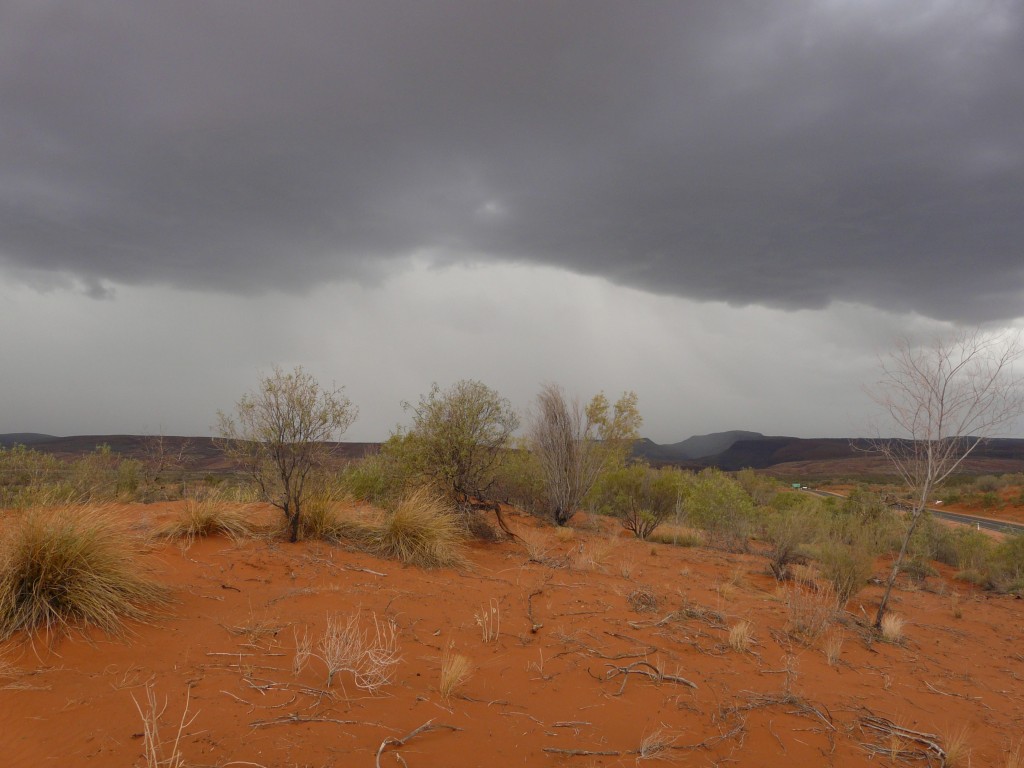

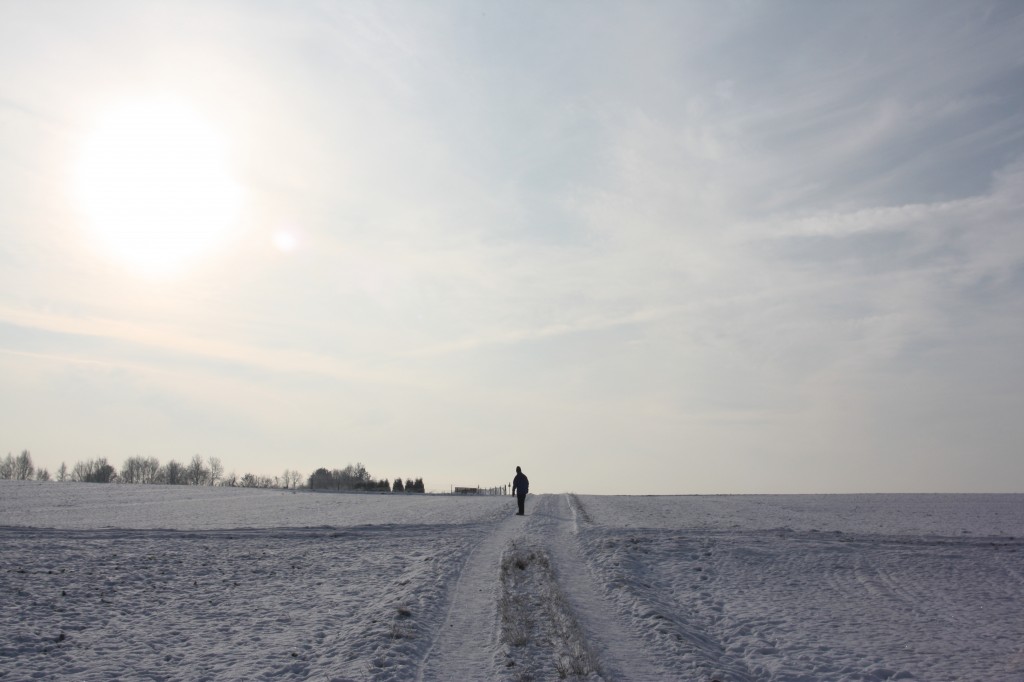
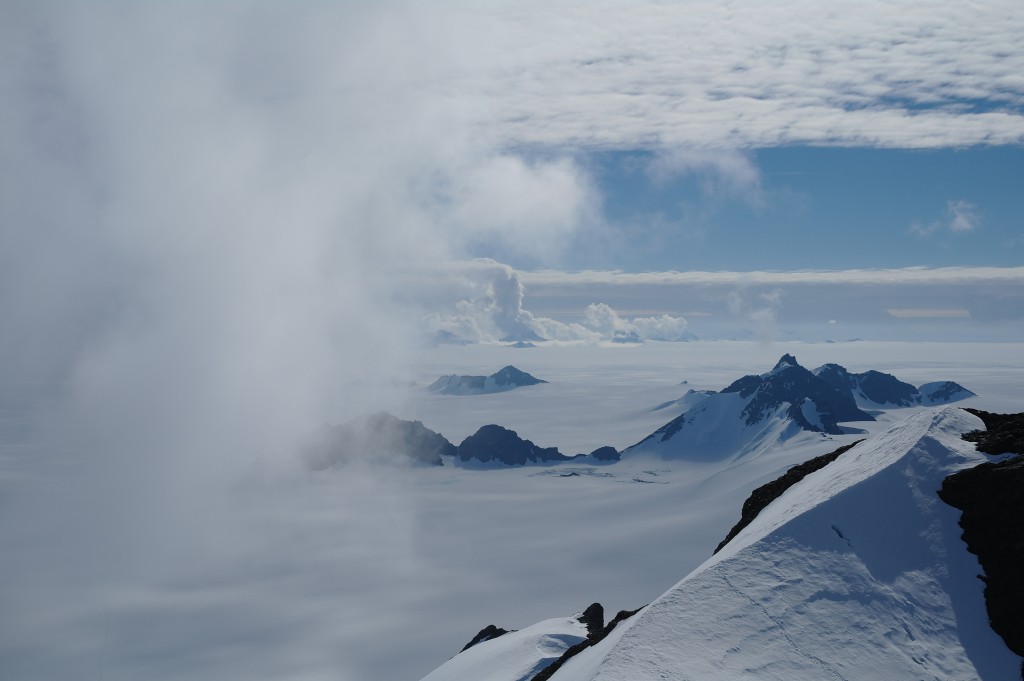
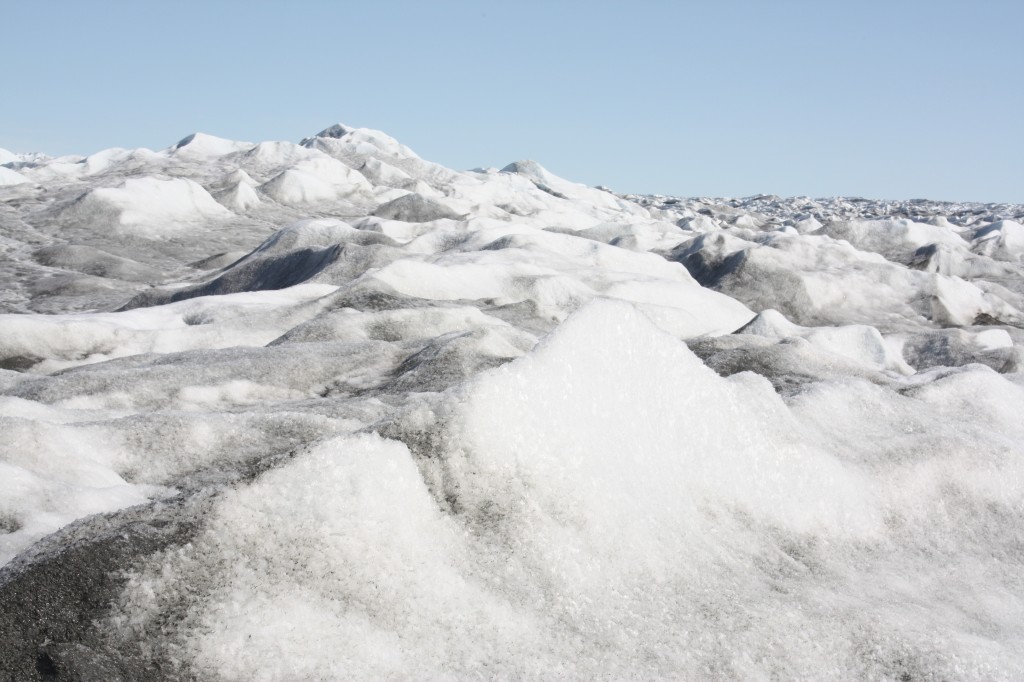
















Feedback